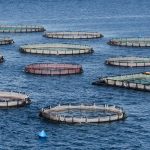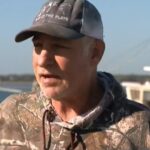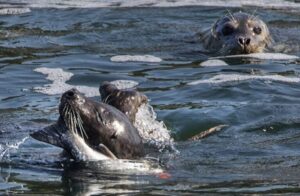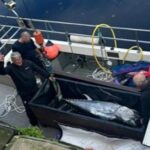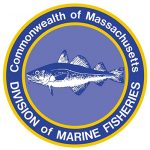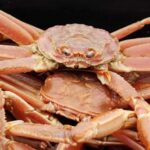Daily Archives: January 3, 2023

‘Dark day for democracy’; FFAW rejects Jason Sullivan’s candidacy for president
Bay Bulls fisherman Jason Sullivan calls the rejection of his nomination for president of the FFAW-Unifor by the union’s election committee a dark day for democracy. “Some of those South American countries must be drooling at the FFAW election process,” said Sullivan, who was notified by e-mail of the rejection earlier today, two days before the scheduled Jan. 5th vote. Two candidates are left in the race — including FFAW staff-rep Greg Pretty, the leading candidate who was endorsed by the union executive board on Dec. 1, the same day former President Keith Sullivan unexpectedly resigned — and Dave Callahan, a west coast fisherman. >click to continue reading< 21:48
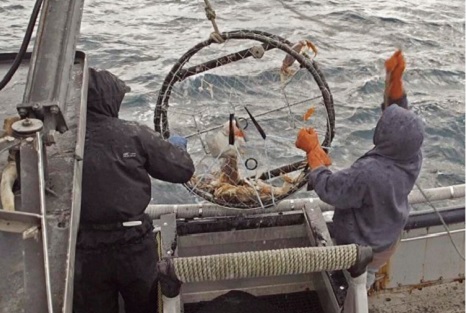
Dungeness crab season closure has ‘cut off a key economic lifeline to small coastal fishing communities’
A group of Oregon Dungeness crab fishers comprising nearly 10% of the state’s permitted commercial fleet sent an open letter this morning to the Oregon Department of Fish and Wildlife strongly criticizing the Department’s failure to open the Dungeness crab season along approximately half of Oregon’s coast in areas where crab have exceeded meat quality thresholds for several weeks. As the delayed opening enters its second month, the fishers’ letter describes in detail how the Department’s refusal to open the season has cut off a key economic lifeline to small fishing communities up and down the Oregon coast. The letter also takes sharp aim at the Oregon Dungeness Crab Advisory Committee, which the fishers describe as an “echo chamber” made up of special interests including major processors that benefit from lower prices that predominate after the end of the peak-demand holiday season, at the expense of mom-and-pop businesses and Oregon consumers. >click to read< 17:24
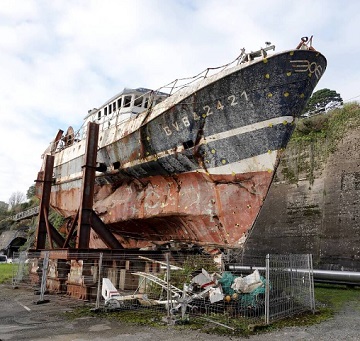
The Bugaled Breizh, sunk in 2004, will leave the Brest arsenal to be dismantled
On January 15, 2023, it will be nineteen years since the trawler Bugaled Breizh of Loctudy (Finistère), sank in less than a minute off Cape Lizard (United Kingdom), a shipwreck that had resulted in the death of the five sailors on board. Since July 2004 and the refloating of the ship for the purposes of the investigation, the wreck is stored out of sight on the naval military base of Brest. Legal proceedings are extinguished on both sides of the Channel. In France, a dismissal order was issued and confirmed in 2016. In Great Britain, the justice concluded in 2021 to a fishing accident to explain the sinking. A thesis firmly refuted by relatives of the victims, who maintain that a submarine would be at the origin of this fatal shipwreck. photos, external links, >click to read< 15:46
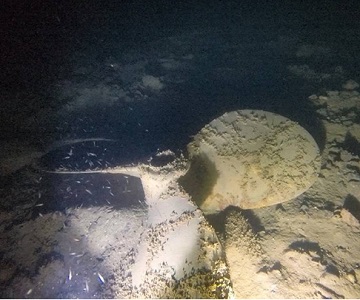
Baffling find made on seafloor 100 miles off Maine, NOAA says. ‘What are the odds?’
Scientists often find oddities on the seafloor, but NOAA researchers were baffled when a camera dropped off Maine landed on top of a large propeller 100 miles from shore. No shipwreck, mind you. Just the propeller “lying among the rocks, sea stars, and sea anemones.” The mystifying discovery was made in the Gulf of Maine, as the fishing vessel Mary Elizabeth was participating in a NOAA Fisheries seafloor survey. The intact propeller was 3 feet across, which means the vessel was at least 50 to 60 feet long, he said. That’s the same length as the Mary Elizabeth, Captain Phil Lynch noted. photos, >click to read< 13:26
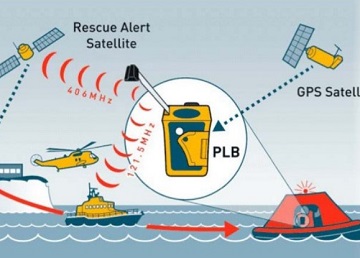
Lessons learned: Personal flotation devices with personal locator beacons save lives
On a a bright, fresh autumn morning, a small trawler left harbour for a day’s fishing with a skipper and crewman on board. Once past the breakwater, the skipper handed over the watch to the crewman and went below to rest. The crewman was wearing light clothing and a personal flotation device (PFD) and carried a personal locator beacon (PLB). During the passage to the fishing grounds, with the vessel under autohelm steering, the crewman left the wheelhouse to prepare the fishing gear on deck. As he was leaning over the transom to rig the trawl wires, the crewman lost his balance and fell into the sea. >click to read< 11:27
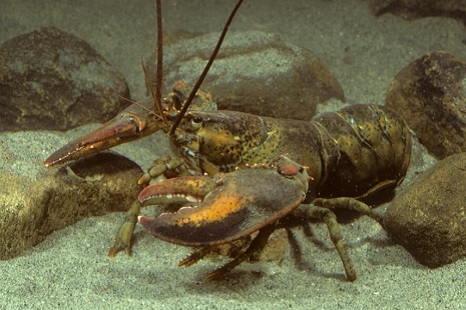
Rocky: The Largest Lobster Ever Caught in Maine
There are approximately 75 species of lobsters, split into two types: clawed lobsters and spiny/rock lobsters. Typically, these sea animals have long bodies and muscular tails. It’s unlikely you will see one while swimming in shallow water since they inhabit deep burrows. They live in cold waters, have eight walking legs, and two large edible claws. Scientists believe lobsters live up to 50 years in the wild, but it’s hard to estimate their age. The largest lobster ever caught in Maine weighed an impressive 27 pounds! Although Rocky was an impressive catch, he wasn’t the largest lobster in the world. Instead, that title goes to a 44-pound 6-ounce lobster caught in Nova Scotia, Canada in 1977. >click to read< 09:55

Offshore wind farms threaten New Jersey’s shellfish industry. Should fishing communities be compensated?
Earlier this month, New Jersey announced it would join eight other states that are seeking a regional approach to compensate fishing communities for the impending losses. “Are we going to be allowed to fish inside of them (the wind turbine fields)?” asked Kirk O. Larson, a scallop fleet owner and mayor of Barnegat Light, New Jersey. “Why did (the federal Bureau of Ocean Energy Management) put a wind farm right inside of a scallop area, the most productive scallop area pretty much on the East Coast, not counting Georges Bank.” Shellfish harvesters like Larson are expected face serious financial damage from offshore wind development projects. “I’m not looking for compensation,” said the scallop fleet owner. “I’m looking for work, so I’m not really looking for welfare.” >click to read< 07:43
Markey, Moulton push for national fund to compensate fishermen for losses due to offshore wind >click to read<

































